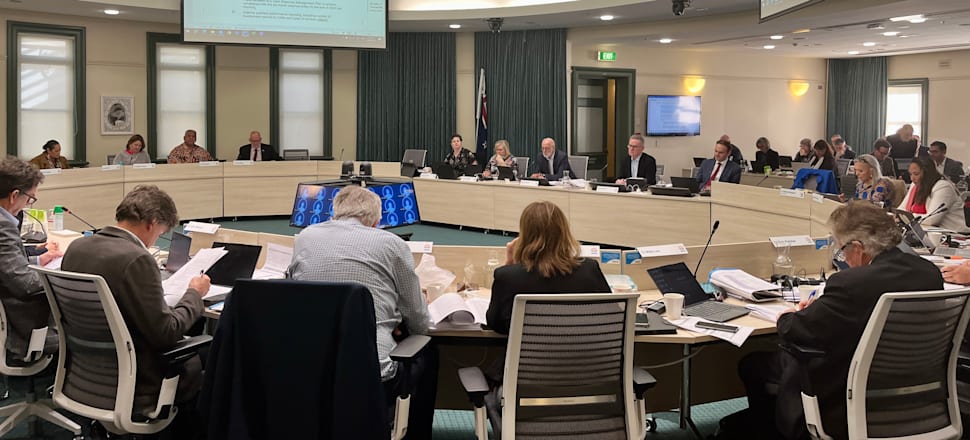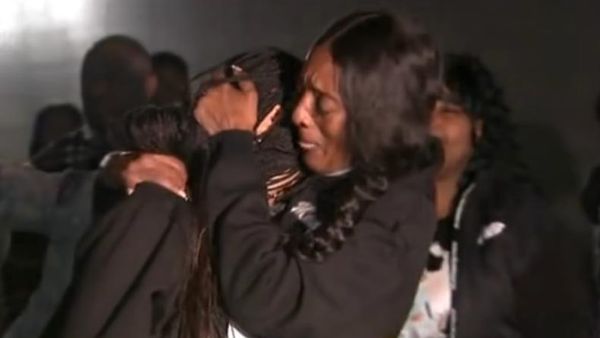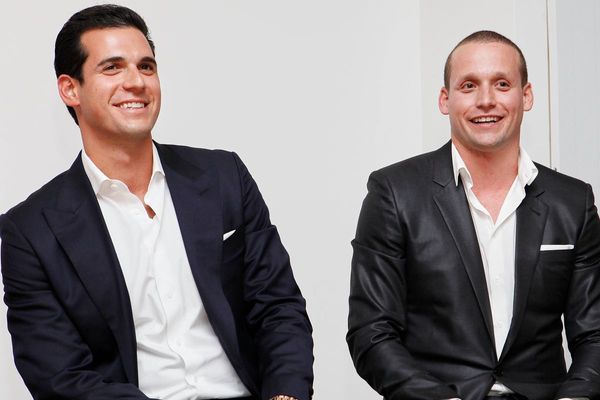
After a day of debate and questions, Auckland’s councillors have put off their budget votes until Friday
A decision on Auckland Mayor Wayne Brown’s budget will have to wait another day as councillors adjourned their big budget meeting without having come to a decision - aside from it becoming clear that a full sale of airport shares is off the table.
An amended version of Brown’s proposal that calls for a partial sale of airport shares and restores some of the cuts and savings he had previously removed will face amendments from other councillors on day two of their deliberations.
It was clear Brown’s desired path of a full selldown wasn’t going to go through as the majority of councillors voiced their disquiet with the asset sale, which would be the biggest in the history of Auckland Council.
However, councillors still had plenty of questions and points to make about details of the amended proposal, including questions around new plans for a political working group that would explore reducing council debt limits.
"It's easy to forget just how long and tortuous this process has been”, Brown said, referring to the long months of workshops and public meetings where he and the council have pored through the council’s budgetary options.
Auckland Council chief financial officer Peter Gudsell warned that increasing debt would reduce the council’s headroom, or buffer to borrow more, which may be needed if costs of storm recovery and the City Rail Link mount further. They’re costs that Brown calls “over-the-hill”: “not within this year but that we do have to think about”.
He said more debt was an implementable strategy, but not necessarily sustainable: "It's likely to be a short-term approach”.
Councillors presented a wide range of views on the share sales, with some saying a major asset sale was an imprudent way to get out of financial difficulties, and others that it was better than increasing council debt.
Manukau ward councillor Lotu Fuli implored the council to explore what else in council’s $70 billion portfolio of assets could be sold.
“Let's have a look at all of our assets. At the start of this process we were told nothing was off the table and then we continued to be given advice about just one asset – our largest asset,” she said. ”If we do sell those shares they'll be gone forever.”
Howick ward councillor Maurice Williamson, a notable proponent of cutting council costs, said much of that $70bn is “unrealisable” - pipes, dams and parks that would be difficult to put on market.
Other councillors were comfortable with selling assets if necessary, but worried about how the council would use the revenue and questioned if a full selldown was needed.
Albert-Eden-Puketāpapa ward councillor Christine Fletcher used Brown's various descriptions of councillors back to him. She said “in the wishes of being constructive and not wanting to be a drongo, financially illiterate or a dipshit”, she wanted to explore other options, adding that “continuing to flog off assets ultimately just defers the day of judgment”.
Waitematā and Gulf ward councillor Mike Lee questioned the political mandate of the governing body to vote for asset sales.
“I don’t believe anyone in the room has a political mandate as recently elected councillors and mayor to sell the airport shares,” he said. “Nobody campaigned on selling assets... and why would you? Selling assets is known to be the kiss of death.”
Waitakere ward councillor Ken Turner called a full selldown a $2.35 billion cork to plug a $325m hole, while his co-councillor from the West, Shane Henderson, said a partial sale could be a worthwhile compromise to prevent wide-ranging cuts to social services.
He said it was going to be impossible to please everyone with the result.
“No-one’s going to be fully happy,” he said. “We're all going to have to swallow a dead rat or two.”

With about two-thirds of the councillors in front of him uncomfortable with a full share sale, Brown was forced to retreat and return with a counter-offer.
Once he had heard from each of his councillors, he produced an amended budget proposal that called for only a partial sale of the airport shares.
It proposed an eight percent sale, which would leave the council with 10 percent of the airport - often considered a blocking stake.
To fund this, Brown’s new version of the budget raised the average residential rate up a percentage point to 7.7 percent and increased the savings target, including $5m more cuts from council operating spending and $3m more cuts from Local Boards.
The partial sale also means cutting a promise of $200m from the airport sale to go towards community projects in Manurewa and Avondale.
But with several further amendments in councillors’ hands, the mayor called an adjournment so the governing body could consider the situation overnight.
It’s been a contentious road up to the vote, with Brown levelling criticism at councillors not getting on his side and some councillors fearing exclusion from the vote until a matter of hours before.
Albany councillor Wayne Walker is a beneficiary of a $3 million shareholding in Auckland Airport - a fact he revealed the same morning as the vote.
Other uncertainties surrounded North Shore councillor Chris Darby and Albert-Eden-Puketāpapa ward councillor Julie Fairey, whose husband is stood-down Transport Minister Michael Wood.
Wood’s shares in Auckland Airport cast a shadow not only over his own role, but also his wife’s ability to take part in Thursday's vote.
An hour or so before the meeting gathered, Walker was given the all clear. He, Darby and Fairey, said they had consulted the Office of the Auditor-General and the council’s legal team and had been advised that they had no conflict of interest that would prevent them from being allowed to vote.
The advice received by the council from the Office of the Auditor-General said “the financial impact of the decision to sell on the price of shares is highly speculative, and there is no certainty what will happen to the share price following the Council’s decision”.







